China Arts & Entertainment
All About the Chinese Films Featured at Busan Film Festival (Part III)
Published
6 years agoon
By
Gabi Verberg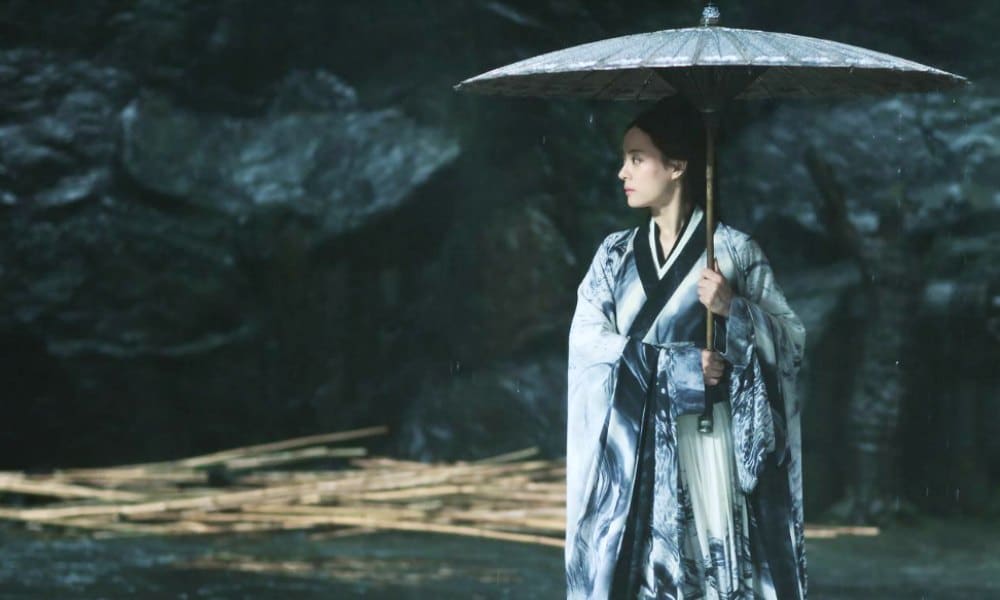
From Chinese dissident filmmakers to government-funded films, you can find it all at Busan, Asia’s biggest film festival. What’s on Weibo provides an overview of all the Chinese nominees at the festival. This week, the final 7 in our Part III (See Part I here, part II here).
On the 4th of October, the 23th Busan International Film Festival in South Korea finally kicked off. With the screening of 323 films from 79 countries, and 140 world and international premieres, it is one of Asia’s biggest and most exciting international film festivals, with China as one of the main suppliers of films.
This week, we will introduce to you to the final batch of the Chinese nominees, including mostly arthouse films in the category Wide Angle (many of them being short films), but also the big comeback of one of China’s greatest directors, Zhang Yimou.
1. My China (Wǒ de Jìngtóu 我的镜头)
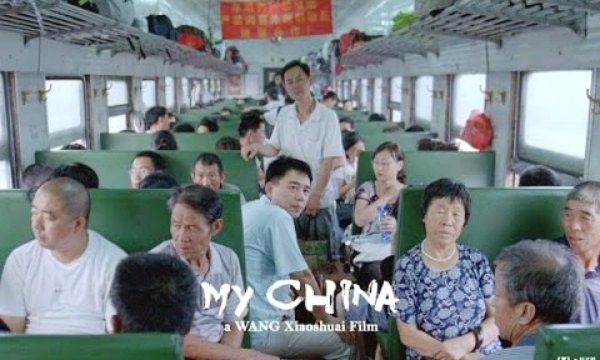
China Mainland/Hong Kong
Genre: Documentary (90 min)
Selected in the category: Wide Angle
Director: Wang Xiaoshuai (王小帅)
Premiere: 6th October 2018, Busan International Film Festival
About the Director:
Wang Xiaoshuai (王小帅) is a renowned Chinese director who was born in Shanghai in 1966. He directed his first film The Days (冬春的日子) in 1993, after which it immediately entered film festivals in Canada, Berlin, The Netherlands, Italy, London and many more. Since then, Wang has made around one film every two years.
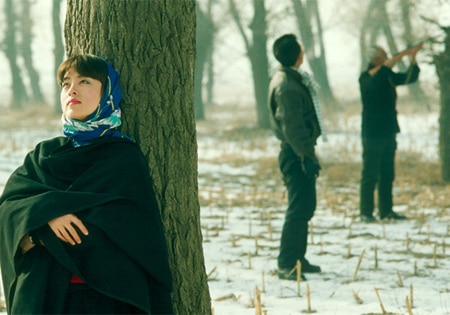
Scene from ‘The Days’ (冬春的日).
Wang especially gained international recognition since the 2001 film Beijing Bicycle (十七岁的单车), which became the winner of the Silver Bear Jury Grand Prix at the Berlin Film Festival and wowed critics with its story of a youth’s search for his stolen bicycle, particularly with its shades of Vittorio De Sica’s 1948 Bicycle Thieves. In 2005, Wang’s film Shanghai Dreams (青红) won the Jury Prize at Cannes Film Festival. Other famous works of Wang include Chongqing Blues (日照重庆) and Red Amnesia (闯入者) which were both nominated for best film at the Venice Film Festival.
Storyline:
My China, also known as Chinese Portrait, is a documentary portraying Chinese people and the places they live in during a period of upheaval. While traveling all over China, the documentary captures people from all walks of life, including miners, fishermen, farmers, students, or construction workers, with Wang Xiaoshuai himself being the main character and guide throughout the film.
See the trailer with Chinese subtitles here.
Why you should watch it:
Although Wang is one of the most famous Chinese directors outside the PRC, his works are often not welcomed within China. With his often-critical lens, he tries to lay bare contemporary China and her societal problems, leading to many of his works being banned in China.
Chinese Portrait might be Wang’s most personal work yet, as he questions his own identity in it by following the path of his family members; he tries to get to know his own country and get an understanding of how the country influenced him as a person. The film is a very intimate portrait of the director and an honest and a beautiful visualization of China’s tumultuous modern history.
2. On The Border (Yánbiān Shàonián 延边少年)
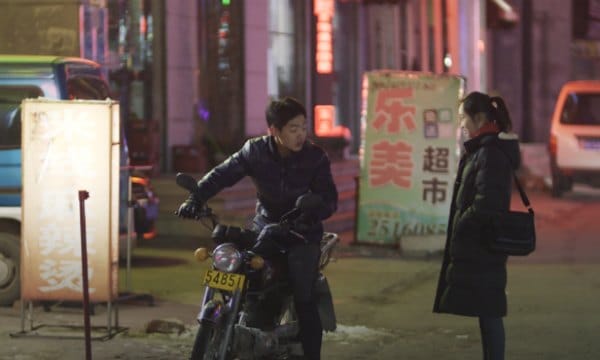
China Mainland
Genre: Drama/Short Film
Selected in the category: Wide Angle
Director: Wei Shujun (魏书钧)
Weibo Hashtag: #延边少年# (164.000+ views)
Premiere: 18th May 2018, Cannes International Film Festival
Starring: Li Zhengming, Cui Yuan, Fei Peng, Gang Yanming, Yang Gao and Zhao Lihua.
About the Director:
Wei Shujun (魏书钧) was born in 1991 in Beijing. At the age of 14, he first entered the film industry as an actor. In the years that followed, he worked in various junior positions, such as runner, assistant director, and sound recorder, before he directed his first documentary Said in the Forbidden City (说在紫禁城). In 2016, Wei had an international breakthrough with his first feature film Duck Neck (浮世千) which got him a nomination at the Busan Film Festival as the youngest nominated director that year.
Storyline:
This 15-minute film revolves around Hua Mingxing, a boy from a Korean ethnic group who lives in a Korean-Chinese border village. His father left him a long time ago to earn money in the city. As the boy is passing his time in the village that is mostly populated by elderly people, he decides to go and find his father in the city to ask him to finance his travel plans to Korea. But instead of finding his dad, Hua ends up roaming the streets of Yanbian, striking up a friendship with a young woman.
See here the trailer with English subtitles.
Why you should watch it:
On the Border was awarded with a Special Jury Distinction-Short Film at the Cannes Film Festival of 2018.
3. Void (Mèn 闷)

China Mainland
Genre: Drama/Short film
Selected in the category: Wide Angle
Director: Xu Jianshang (徐鉴赏)
Premiere: 19th June 2018, China Mainland
Starring: Chen Xuanyu (陈宣宇)
About the Director:
Majoring in film directing at Beijing Film Academy, Xu Jianshang received recognition for her short Lost in the City (城市), which won Best Screenplay at the Xiejin Academy Film Festival and got nominated for the French Poitiers Film Festival. She graduated from the Asian Film Academy in 2014 and directed the feature film Ma•amaa, a co-production between India and China. She is currently studying film production at Busan Asian Film School.
Storyline:
Pai is a Beijing-based student who is alone and struggling with her studies, her friends, and her living situation. When Pai tries to make things better, the this 19-minute short film shows how her situation further spirals out of control.
Noteworthy:
Despite the fact that Xu is still young, she already received much recognition for her work. Xu is the only female listed among all the directors in our three part overview of Chinese nominees at Busan.
4. In the Middle of Blue (Yīzhǐ lánsè de xiā 一只蓝色的虾)

China Mainland
Genre: Drama/Short film
Selected in the category: Wide Angle
Director: Qi Ji or Miracle(祁骥)
Weibo Hashtag: #一只蓝色的虾# (315 views)
Premiere: 21th June 2018, Beijing Film Academy Graduation Show
Starring: Kong Yan (孔雁), Zhang Benyu (张本煜) and Zhang Lu (张鹭).
About the Director:
Qi Ji is a 22-year-old director that graduated from the Beijing Film Academy in July of this year. In 2016, after studying film for only one and a half year, he directed Belief (念) a short film portraying the Muslim minority in China. The film unexpectedly entered the International Youth Micro Film Exposition (国际青少年微电影) and ended in the top ten Best Chinese Films. For Qi’s second work, In the Middle of Blue, he won the jury award at the +86358 Short Film Festival.
See here his speech ‘Can an artist be made?’ on TEDx in English.
Storyline:
This 26-minute film features a female protagonist called Ye Hong, who is left by her husband after not being able to have children. Her life then takes a dramatic change, that unexpectedly leaves her having twins and only raising one of them.
Why you should watch it:
Qi is an extremely young and promising director that is worth keeping your eye on. This does not only show in his nomination for the Busan Film Festival, but is also evident from the cast he rounded up for this production.
5. Down There (Nàlǐ 那里)

China Mainland/France
Genre: Drama/Short film
Selected in the category: Wide Angle
Director: Yang Zhengfan (杨正帆)
Premiere: 6th of September 2018, Venice Film Festival
Starring: An Qigu, Wang Songhua and Chen Shaokai
About the Director:
Yang Zhengfan started his career in filmmaking in 2009, and in 2012 he set up production company ‘Burn the Film‘ with producer Zhu Shengze (朱声仄). In 2013, his work Distant (远方) received international attention and was nominated at the Locarno and Vancouver Film Festival. In 2016, he was invited at the Rotterdam International Film Festival, receiving the Jury Award at China Independent Film Festival and the Best Experimental Film Award at South Taiwan Film Festival with his work Where Are You Going (你往何处去).
In collaboration with Zhu, Yang also worked as a cinematographer and producer for two documentaries titled Out of Focus (虚焦) and Another Year (又一年). Both received much international attention.
Storyline:
A blissful night is unexpectedly interrupted by the sound of a woman desperately screaming downstairs. Residents of the apartment building do wonder about the sound, but it quickly loses their interest, and continue the thing that they were doing before. If nobody sees what happened, does that mean it becomes something that never happened? This 11-minute sgort film explores indifference and cruelty in the modern-day city.
See here the trailer with English subtitles.
Why you should watch it:
Down There received nominations for both the Venice International Film Festival and the New York Film Festival. Another reason why you should watch it, is that Yang has proved to be an expert in portraying individuality, loneliness, and exclusion of people in big cities. Whether he is portraying migrant worker families or middle age taxi drivers, Yang has a gift for showing the immensely intimidating effect the big city environment has on people.
6. Monkey Magic (Dànào Xīyóu 大闹西游)

China Mainland
Genre: Animation
Selected in the category: Wide Angle
Director: Ma Xihai (马系海)
Weibo Hashtag: #大闹西游# (3.498.000+ views)
Premiere: 22nd of September 2018, China
Starring: Sun Ye (孙晔), Shen Dawei (沈达威), Tao Dian (陶典) and Liu Beichen (刘北辰).
About the Director:
Ma Xihai began his career in the animation industry in the early 1990s. He started as a crew member, made it to senior graphic designer, production supervisor, and eventually executive director. Besides Monkey Magig, he has worked on many adaptions like Master Q: Incredible Pet Detective (老夫子之反斗侦探), Master Q: Fantasy Zone Battle (老夫子之魔界梦战记), and Storm Rider. His computer animations even brought him to South Korea where he produced a TV series, and to Japan where he worked on game animations. In 2013 he co-directed his first animation film The Soccer Way (圣龙奇兵大冒险). Monkey Magic will be the first film directed entirely by Ma.
Storyline:
Monkey Magic is a modern reinterpretation of the timeless Chinese classic Journey to the West. The story starts when toys refuse to admit that monkey Sun Wuyuan is the king of monkeys because he doesn’t have Sun Wukong’s magic stick. Full of determination, Sun Wuyuan goes to find the legendary king Sun Wukong on Mount Huaguo to give him the magic stick – the beginning of a tumultuous adventure.
See here the trailer with Chinese subtitles.
Why you should watch it:
The film has already seen a very good reception within China since it premiered, selling over 36 million tickets. It was the most popular film in theaters during the mid-autumn festival, and it already is the most successful animation film of 2018.
7. Shadow (Yǐng 影)
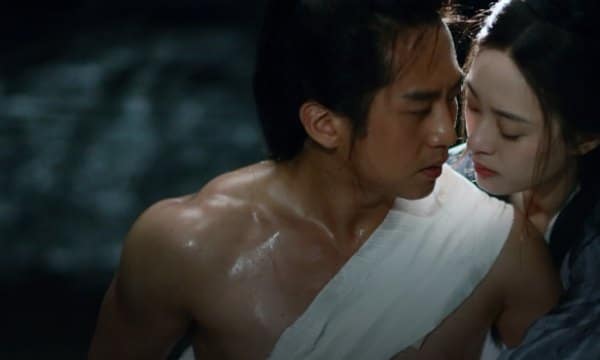
China Mainland
Genre: Drama/Action/Historic
Selected in the category: A View on Asian Cinema
Director: Zhang Yimou (张艺谋)
Weibo Hashtag: #影# (88.674.000+ views)
Premiere: 6th of September 2018, Venice Film Festival
Starring: Chao Deng (邓超), Sun Li (孙俪), Zheng Kai (郑恺), Wang Qianyuan (王千源), Wang Jingchun (王景春), Hu Jun (胡军), Guan Xiaotong (关晓彤) and Wu Leo (吴磊).
About the Director:
The renowned Zhang Yimou is an awarded cinematographer and director from Xi’an. He is often praised for his knowledge of Chinese history and his capacity to respectfully and truthfully transform these old stories into white screen productions. He is one of the few Chinese directors that is a regular at both Asian and western film festivals. In 2003, his film Hero (英雄) was nominated for an Oscar for the best foreign film. Other famous works include Red Sorghum 红高粱), Not One Less (一个都不能少), The Flowers of War (金陵十三钗), and his previous film starring Matt Damon, The Great Wall (长城).
In 2008, Zhang directed the opening- and closing ceremony of the Olympics held in Beijing, China. This gained him a very high reputation in both China and abroad. That same year, he was nominated for “person of the year” by the American Time Magazine.
Storyline:
Shadow is based on Zhu Sujin’s rendition of China’s legendary Three Kingdoms saga. It tells the story of Yu, a commander who lost his kingdom. In an attempt to regain his power and kingdom, he trains a boy named Jing to become his ‘shadow’ or double (note: Yu and Jing are both played by Chao Deng). But things go differently than he planned, with Jing falling in love with Yu’s wife and growing up to doubt his own identity and the path that was chosen for him.
See here the trailer with English subtitles.
Why you should watch it:
Variety was positive about the film and was talking of a comeback after Zhang’s somewhat soulless previous two films. The review read: “Every supremely controlled stylistic element of Zhang Yimou’s breathtakingly beautiful ‘Shadow’ is an echo of another, a motif repeated, a pattern recurring in a fractionally different way each time.”
Others describe the film as “rousing” and “typically beautiful.”
To see the other Chinese films at Busan, check Part I and Part II here.
By Gabi Verberg
Follow @whatsonweibo
Spotted a mistake or want to add something? Please let us know in comments below or email us.
©2018 Whatsonweibo. All rights reserved. Do not reproduce our content without permission – you can contact us at info@whatsonweibo.com.
Gabi Verberg is a Business graduate from the University of Amsterdam who has worked and studied in Shanghai and Beijing. She now lives in Amsterdam and works as a part-time translator, with a particular interest in Chinese modern culture and politics.

China Memes & Viral
Chengdu Disney: The Quirkiest Hotspot in China
How a senior activity park in Chengdu was ‘Disneyfied’ and became a viral hotspot.
Published
4 days agoon
April 12, 2024
How did a common park turn into a buzzing hotspot? By mixing online trends with real-life fun, blending foreign styles with local charm, and adding a dash of humor and absurdity, Chengdu now boasts its very own ‘Chengdu Disney’. We explain the trend.
– By Manya Koetse, co-authored by Ruixin Zhang
Have you heard about Chengdu Disney yet? If not, it’s probably unlike anything you’d imagine. It’s not actually a Disney theme park opening up in Chengdu, but it’s one of the city’s most viral hotspots these days.
What is now known as ‘Chengdu Disney’ all over the Chinese internet is actually a small outdoor park in a residential area in Chengdu’s Yulin area, which also serves as the local senior fitness activity center.
Crowds of young people are coming to this area to take photos and videos, hang out, sing songs, cosplay, and be part of China’s internet culture in an offline setting.
Once Upon a Rap Talent Show
The roots of ‘Chengdu Disney’ can be traced back to the Chinese hip-hop talent show The Rap of China (中国新说唱), where a performer named Nuomi (诺米), also known as Lodmemo, was eliminated by Chinese rapper Boss Shady (谢帝 Xièdì), one of the judges on the show.
Nuomi felt upset about the elimination and a comment made by his idol mentor, who mistakenly referred to a song Nuomi made for his ‘grandma’ instead of his grandfather. His frustration led to a viral livestream where he expressed his anger towards his participation in The Rap of China and Boss Shady.
However, it wasn’t only his anger that caught attention; it was his exaggerated way of speaking and mannerisms. Nuomi, with his Sichuan accent, repeatedly inserted English phrases like “y’know what I’m saying” and gestured as if throwing punches.
His oversized silver chain, sagging pants, and urban streetwear only reinforce the idea that Nuomi is trying a bit too hard to emulate the fashion style of American rappers from the early 2000s, complete with swagger and street credibility.

Lodmemo emulates the style of American rappers in the early 2000s, and he has made it his brand.
Although people mocked him for his wannabe ‘gangsta’ style, Nuomi embraced the teasing and turned it into an opportunity for fame.
He decided to create a diss track titled Xiè Tiān Xièdì 谢天谢帝, “Thank Heaven, Thank Emperor,” a word joke on Boss Shady’s name, which sounds like “Shady” but literally means ‘Thank the Emperor’ in Chinese. A diss track is a hip hop or rap song intended to mock someone else, usually a fellow musician.
In the song, when Nuomi disses Boss Shady (谢帝 Xièdì), he raps in Sichuan accent: “Xièdì Xièdì wǒ yào diss nǐ [谢帝谢帝我要diss你].” The last two words, namely “diss nǐ” actually means “to diss you” but sounds exactly like the Chinese word for ‘Disney’: Díshìní (迪士尼). This was soon picked up by netizens, who found humor in the similarity; it sounded as if the ‘tough’ rapper Nuomi was singing about wanting to go to Disney.

Nuomi and his diss track, from the music video.
Nuomi filmed the music video for this diss track at a senior activity park in Chengdu’s Yulin subdistrict. The music video went viral in late March, and led to the park being nicknamed the ‘Chengdu Disney.’
The particular exercise machine on which Nuomi performed his rap quickly became an iconic landmark on Douyin, as everyone eagerly sought to visit, sit on the same see-saw-style exercise machine, and repeat the phrase, mimicking the viral video.

What began as a homonym led to people ‘Disneyfying’ the park itself, with crowds of visitors flocking to the park, some dressed in Disney-related costumes.

This further developed the concept of a Chengdu ‘Disney’ destination, turning the park playground into the happiest place in Yulin.
Chengdu: China’s Most Relaxed Hip Hop Hotspot
Chengdu holds a special place in China’s underground hip-hop scene, thanks to its vibrant music culture and the presence of many renowned Chinese hip-hop artists who incorporate the Sichuan dialect into their songs and raps.
This is one reason why this ‘Disney’ meme happened in Chengdu and not in any other Chinese city. But beyond its musical significance, the playful spirit of the meme also aligns with Chengdu’s reputation for being an incredibly laid-back city.
In recent years, the pursuit of a certain “relaxed feeling” (sōngchígǎn 松弛感) has gained popularity across the Chinese internet. Sōngchígǎn is a combination of the word for “relaxed,” “loose” or “lax” (松弛) and the word for “feeling” (感). Initially used to describe a particular female aesthetic, the term evolved to represent a lifestyle where individuals strive to maintain a relaxed demeanor, especially in the face of stressful situations.
🌟 Attention!
For 11 years, What’s on Weibo has remained a 100% independent blog, fueled by my passion to write about China’s digital culture and online trends. Over a year ago, we introduced a soft paywall to ensure the sustainability of this platform. I’m grateful to all our loyal readers who’ve subscribed since 2022. Your support has been invaluable. But we need more subscribers to continue our work. If you appreciate our content and want to support independent China reporting, please consider becoming a subscriber. Your support keeps What’s on Weibo going strong!
The concept gained traction online in mid-2022 when a Weibo user shared a story of a family remaining composed when their travel plans were unexpectedly disrupted due to passport issues. Their calm and collected response inspired the adoption of the “relaxed feeling” term (also read here).
Central to embodying this sense of relaxation is being unfazed by others’ opinions and avoiding unnecessary stress or haste out of fear of judgment.
Nowadays, Chinese cities aim to foster this sense of sōngchígǎn. Not too long ago, there were many hot topics suggesting that Chengdu is the most sōngchí 松弛, the most relaxed city in China.
This sentiment is reflected in the ‘Chengdu Disney’ trend, which both pokes fun at a certain hip-hop aesthetic deemed overly relaxed—like the guys who showed up with sagging pants—and embraces a carefree, childlike silliness that resonates with the city’s character and its people.

Mocking sagging pants at ‘Chengdu Disney.’
Despite the influx of visitors to the Chengdu Disney area, authorities have not yet significantly intervened. Community notices urging respect for nearby residents and the presence of police officers to maintain order indicate a relatively hands-off approach. For now, it seems most people are simply enjoying the relaxed atmosphere.
Being Part of the Meme
An important aspect that contributes to the appeal of Chengdu Disney is its nature as an online meme, allowing people to actively participate in it.

Scenes from Chengdu Disney, images via Weibo.
China has a very strong meme culture. Although there are all kinds of memes, from visual to verbal, many Chinese memes incorporate wordplay. In part, this has to do with the nature of Chinese language, as it offers various opportunities for puns, homophones, and linguistic creativity thanks to its tones and characters.
The use of homophones on Chinese social media is as old as Chinese social media itself. One of the most famous examples is the phrase ‘cǎo ní mǎ’ (草泥马), which literally means ‘grass mud horse’, but is pronounced in the same way as the vulgar “f*ck your mother” (which is written with three different characters).
In the case of the Chengdu Disney trend, it combines a verbal meme—stemming from the ‘diss nǐ’ / Díshìní homophone—and a visual meme, where people gather to pose for videos/photos in the same location, repeating the same phrase.
Moreover, the trend bridges the gap between the online and offline worlds, as people come together at the Chengdu playground, forming a tangible community through digital culture.
The fact that this is happening at a residential exercise park for the elderly adds to the humor: it’s a Chengdu take on what “urban” truly means. These colorful exercise machines are a common sight in Chinese parks nationwide and are actually very mundane. Transforming something so normal into something extraordinary is part of the meme.

A 3D-printed model version of the exercise equipment featured in Nuomi’s music video.
Lastly, the incorporation of the Disney element adds a touch of whimsy to the trend. By introducing characters like Snow White and Mickey Mouse, the trend blends American influences (hip-hop, Disney) with local Chengdu culture, creating a captivating and absurd backdrop for a viral phenomenon.
For some people, the pace in which these trends develop is just too quick. On Weibo, one popular tourism blogger (@吴必虎) wrote: “The viral hotspots are truly unpredictable these days. We’re still seeing buzz around the spicy hot pot in Gansu’s Tianshui, meanwhile, a small seesaw originally meant for the elderly in a residential community suddenly turns into “Chengdu Disneyland,” catching the cultural and tourism authorities of Sichuan and even Shanghai Disneyland off guard. Netizens are truly powerful, even making it difficult for me, as a professional cultural tourism researcher, to keep up with them.”
By Manya Koetse, co-authored by Ruixin Zhang
Independently reporting China trends for over a decade. Like what we do? Support us and get the story behind the hashtag by subscribing:
Spotted a mistake or want to add something? Please let us know in comments below or email us. First-time commenters, please be patient – we will have to manually approve your comment before it appears.
©2024 Whatsonweibo. All rights reserved. Do not reproduce our content without permission – you can contact us at info@whatsonweibo.com.
China Music
The Chinese Viral TikTok Song Explained (No, It’s Not About Samsung)
The viral Chinese ‘Samsung’ Tiktok song is also not about cheating or getting back with your ex.
Published
2 weeks agoon
March 31, 2024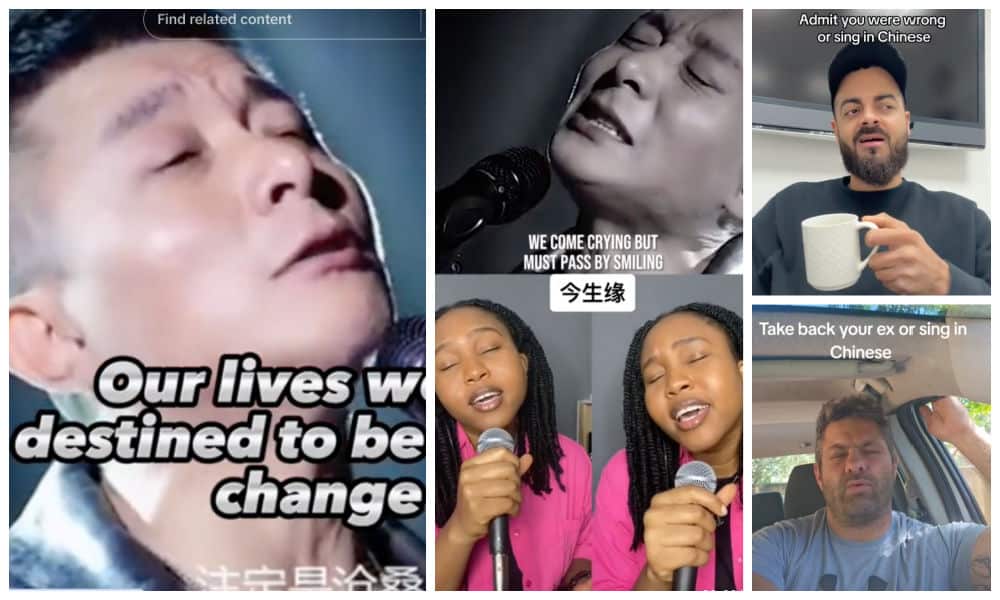
Over the past few days, a Chinese song ‘challenge’ has been going viral on TikTok, with various TikTokers from America and beyond mastering the phonetics of a Mandarin song, lip-syncing it and delivering their own dramatic performance.
TikTok user Ajibola Olalekan posted the popular part of the song on March 16, receiving over 71k likes within two weeks, with various TikTokers using the sound for their own videos, some receiving millions of views (watch).
There's this TikTok challenge where people are pouring their hearts into mastering the phonetics of this Chinese song and delivering a dramatic performance. pic.twitter.com/AkVepxec8m
— Manya Koetse (@manyapan) March 31, 2024
TikTok creator Emily, also known as Maverickmother, lip-synced the song from her car, writing: “Admit to your husband you were wrong and apologize or sing in Chinese..”

The popular video maker Azz (@theofficial_azz) also posted a video of himself singing the song, writing: “Admit you were wrong or sing in Chinese.”

TV host and content creator Mark Odea took things a bit further and put on a dramatic performance of himself lip-syncing the song, writing: “I didn’t realize this song was in English.” According to his interpretation of the song, the lyrics go like this:
“Woman cheat
So true in shit sun sun
Would you lie? you shout It’s over Ya
But you are now women itchy
Loud loud itchy ya
Woman cheat send some d
Ching eat chang”
While some think the song is about cheating or getting back with your ex, others also refer to this song as the “Chinese Samsung song,” because they believe the singer is singing about ‘Samsung.’ It’s actually the word cāngsāng (沧桑) they’re hearing, meaning ‘great changes’ or ‘ups and downs.’
The Chinese song in question is “This Life’s Fate” (今生缘) by the Beijing-born singer Chuan Zi (川子, real name Jiang Yachuan 姜亚川, born in 1969). Released in 2009, it is one of his most famous songs, which is about life and friendship.
The part of the song that has recently gone viral on TikTok is as follows:
我们今生注定是沧桑
Wǒmen jīnshēng zhùdìng shì cāngsāng
哭着来要笑着走过呀
Kūzhe lái yào xiàozhe zǒuguò ya
朋友啊让我们一起牢牢铭记呀
Péngyǒu a ràng wǒmen yìqǐ láo láo míngjì ya
我们今生兄弟情谊长
Wǒmen jīnshēng xiōngdì qíngyì cháng
“Our lives are destined to be full of change
We cried when we came [into this world], let’s leave with a smile
My friend, let’s remember very well
We’ll always be like brothers in this life”
By now, the Tiktok trend of foreigners pouring their hearts into mastering a song they may not even understand has also attracted attention on Chinese social media, where many netizens are enjoying the spectacle.
“The feelings of a ‘straight guy’ are just universal,” one top commenter writes (the word used is ‘Zhinan’ 直男, originally referring to heterosexual males, but then came to refer to an entire category of men in China).
“They may not get the exact meaning of the song, but the emotion is there,” others say.
The song, filled with nostalgia, contemplates life and death, emphasizing our shared journey and finding solace in companionship.
If you want to master the entire song yourself, here are the full lyrics (see full song here):
我们今生有缘在路上
Wǒmen jīnshēng yǒu yuán zài lùshàng
In this life, we are destined to be on this journey
只要我们彼此永不忘
Zhǐyào wǒmen bǐcǐ yǒng bù wàng
If only we never forget each other
朋友啊,让我们一起牢牢铭记呀
Péngyǒu a, ràng wǒmen yīqǐ láoláo míngjì ya
My friend, let’s remember very well
别在乎那一些忧和伤
Bié zàihu, nà yīxiē yōu hé shāng
Don’t mind about all that worry and pain
我们今生注定是沧桑
Wǒmen jīnshēng zhùdìng shì cāngsāng
Our lives are destined to be full of change
哭着来要笑着走过呀
Kūzhe lái yào xiàozhe zǒuguò ya
We cried when we came [into this world], let’s leave with a smile
朋友啊,让我们一起牢牢铭记呀
Péngyǒu a, ràng wǒmen yīqǐ láoláo míngjì ya.
My friend, let’s remember very well
我们今生兄弟情谊长
Wǒmen jīnshēng xiōngdì qíngyì cháng
We’ll always be like brothers in this life
朋友啊,让我们一起牢牢铭记呀
Péngyǒu a, ràng wǒmen yīqǐ láoláo míngjì ya
My friend, let’s remember very well
我们今生有缘在路上
Wǒmen jīnshēng yǒu yuán zài lùshàng
In this life, we are destined to be on this journey
只要我们彼此永不忘
Zhǐyào wǒmen bǐcǐ yǒng bù wàng
As long as we never forget each other.
朋友啊,让我们一起牢牢铭记呀
Péngyǒu a, ràng wǒmen yīqǐ láoláo míngjì ya
My friend, let’s remember very well
别在乎,那一些忧和伤
Bié zàihu, nà yīxiē yōu hé shāng
Don’t mind about all that worry and pain
我们今生就像梦一场
Wǒmen jīnshēng jiù xiàng mèng yī chǎng
This life is like a dream.
有你陪喝醉了又何妨
Yǒu nǐ péi hēzuì le yòu héfáng
What’s the harm in getting drunk together with you
朋友啊,让我们一起牢牢铭记呀
Péngyǒu a, ràng wǒmen yīqǐ láoláo míngjì ya
My friend, let’s remember it very well
凡尘过后终了无牵挂
Fánchén guòhòu zhōngle wú qiānguà.
After this mundane life, there will be no worries
朋友啊,让我们一起牢牢铭记呀
Péngyǒu a, ràng wǒmen yīqǐ láoláo míngjì ya.
My friend, let’s remember it very well
By Manya Koetse
Independently reporting China trends for over a decade. Like what we do? Support us and get the story behind the hashtag by subscribing:
Spotted a mistake or want to add something? Please let us know in comments below or email us. First-time commenters, please be patient – we will have to manually approve your comment before it appears.
©2024 Whatsonweibo. All rights reserved. Do not reproduce our content without permission – you can contact us at info@whatsonweibo.com.
Subscribe

Chengdu Disney: The Quirkiest Hotspot in China

Where to Eat and Drink in Beijing: Yellen’s Picks

Weibo Watch: Burning BMWs

More than Malatang: Tianshui’s Recipe for Success

The Chinese Viral TikTok Song Explained (No, It’s Not About Samsung)

The ‘Two Sessions’ Suggestions: Six Proposals Raising Online Discussions

A Snowball Effect: How Cold Harbin Became the Hottest Place in China

Jia Ling Returns to the Limelight with New “YOLO” Movie and 110-Pound Weight Loss Announcement

Top 9 Chinese Movies to Watch This Spring Festival Holiday

Party Slogan, Weibo Hashtag: “The Next China Will Still Be China”

From Pitch to Politics: About the Messy Messi Affair in Hong Kong (Updated)

Weibo Watch: Frogs in Wells

Looking Back on the 2024 CMG Spring Festival Gala: Highs, Lows, and Noteworthy Moments

Two Years After MU5735 Crash: New Report Finds “Nothing Abnormal” Surrounding Deadly Nose Dive

More than Malatang: Tianshui’s Recipe for Success
Get in touch
Would you like to become a contributor, or do you have any tips or suggestions? Get in touch here!
Popular Reads
-

 China Insight1 month ago
China Insight1 month agoThe ‘Two Sessions’ Suggestions: Six Proposals Raising Online Discussions
-

 China Insight3 months ago
China Insight3 months agoA Snowball Effect: How Cold Harbin Became the Hottest Place in China
-

 China Arts & Entertainment3 months ago
China Arts & Entertainment3 months agoJia Ling Returns to the Limelight with New “YOLO” Movie and 110-Pound Weight Loss Announcement
-

 China Arts & Entertainment2 months ago
China Arts & Entertainment2 months agoTop 9 Chinese Movies to Watch This Spring Festival Holiday





